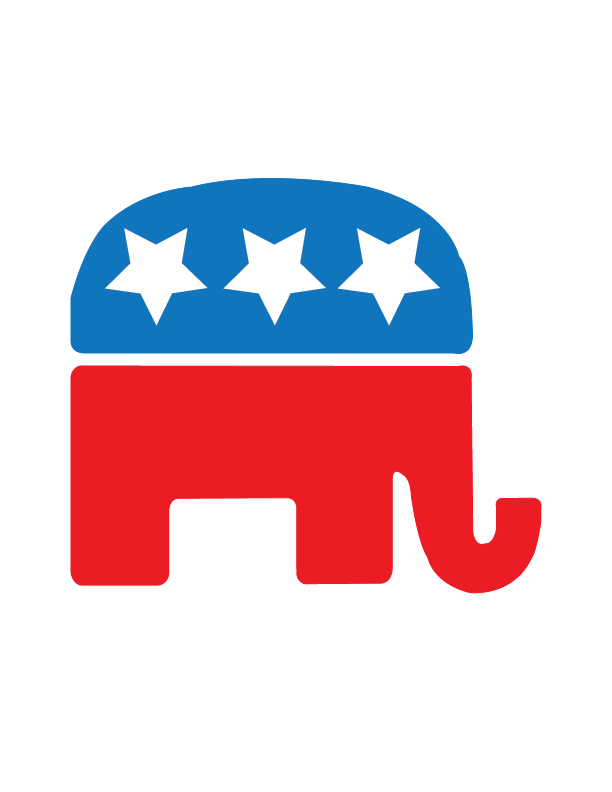For many liberals, American conservatives embody everything that is wrong with the United States. They’re reactionary, racist, misogynist, xenophobic, homophobic capitalists intent on controlling women’s bodies and lives. They don’t respect the rule of law, nor do they love freedom or democracy. They’re a group best named “MAGA Republicans,” veritable menaces who follow an orange narcissist, refuse to accept the results of the 2020 presidential election and celebrate political violence.
But is this true? Are the motivations of conservatism discrimination and harm towards others? Is conservatism a blind allegiance to the past, despite new evidence and the inevitable turning of the wheels of history?
If one looks at the intellectual roots, the motivations and the origins of conservatism, one must conclude with a resounding no. Conservatism, properly understood, is driven by appreciation for the past, by the necessity of virtue – and by the love of home.
Even some conservatives don’t understand this fact. The British-American writer Andrew Sullivan, for instance, describes conservatism as possessing two “moods”: “an attachment to the world as it is,” a resistance to change and “an attachment to what once was…a radical desire to overturn the present in order to restore the past.”
This framing suggests preservation for the sake of preservation, motivated by fear and insecurity.
That’s not how Edmund Burke, the father of modern conservatism, would’ve understood his philosophy. He states this clearly in his foundational text, “Reflections on the Revolution in France” (1790). Change, he says, is not a bad thing: “A state without a means of change is without the means of its conservation.”
But change must be implemented with caution. Policies without guidance from history and the moral law must be rejected; liberty without virtue is a blind man leading another blind man to a fictional treasure.
Burke knew this was true from experience. Writing against the radicals of the French Revolution – essentially the liberals of his day, who wanted to restart society according to an areligious, mechanistic, rational and “progressive” framework – Burke warned that destruction of social institutions, religion (which is “the basis of civil society”) and cultural mores would lead only to violence and death.
He proved a prophet. Only a few years after the publication of “Reflections,” the French Revolution descended into terror, political violence and widespread fear, devoid of the reason it touted so fiercely.
Change was necessary, Burke thought, but it must be done slowly, backed by evidence from history, grounded in legal precedent and tied to a nation’s cultural and moral identity. To abandon these parameters was to risk the loss of rights and freedom, and to open the door to tyranny.
Freedom, for Burke, was arbitrated by virtue. Even democratic forms of government could lead to “evil” if they were untethered to a cultivated sense of justice, duty and the public good.
Since Burke, there have been many other conservative thinkers who have further described the conservative temperament and philosophy.
Russell Kirk, one of the great political minds of the 20th century, described six aspects of conservatism: a belief in a transcendent, moral order; social continuity, or the feeling that the “devil you know is better than the devil you don’t”; that we stand on the shoulders of the giants of the past; that our ancestors possess an ancient wisdom that is vital to listen to; prudence, a key political virtue; the importance of private property; and, perhaps most importantly, that human nature is imperfect and always will be – to aim for a utopia is to spell disaster.
The late Sir Roger Scruton, who is perhaps the most important conservative thinker of the last 50 years, described the conservative disposition in the best, or at least the most charitable, way: the love for home.
For Scruton, home isn’t just a physical place; it’s also “the people contained in it, and the surrounding settlements that endow that home with lasting contours and an enduring smile.” This necessarily leads a conservative to be both steward and guardian, to preserve communities for their means – not just their ends.
There are conservative elements to all manner of political movements and goals. Can a justice system be called just if it allows corruption to reign? What use are the promised goods of the free market if they lead only to bleak, money-grubbing materialism? If the rewards of a system aren’t oriented towards the public good, then what good is the system?
This is to say that many liberal policies have a point, even if they are misguided in method and application. This is also to say that many policies advocated by the right are neither conservative nor positive because they act as bastions against change.
It’s unfortunate and wrong that the American right has committed several serious recent sins against its own principles. Truly, there can be nothing conservative about undermining political and electoral norms, nor can much be said for their tendency towards reactionism.
But perhaps if the conservative disposition and motives were better understood, rather than blithe descriptions decrying alleged bigotry, our current political situation would be a calmer, more reasonable place.
Consider reexamining just a few of conservatives’ most defended positions. Pro-lifers, for example, advocate for the unborn in an attempt to preserve life – not because they want to control women’s bodies. Likewise, not all who want a limited welfare state hate the poor; many just want to see personal responsibility win out.
Conservatives and the American right are by no means perfect – far from it. But their values are based on something deep, something historical, something tested and something observable.
They aren’t simple bigots, nor are they defined by a subset’s dogged allegiance to one man. Conservatives love their home, and they love their ways of life – and they want that to be respected.
Ben Haines is a 24-year-old history graduate student from Shreveport.







